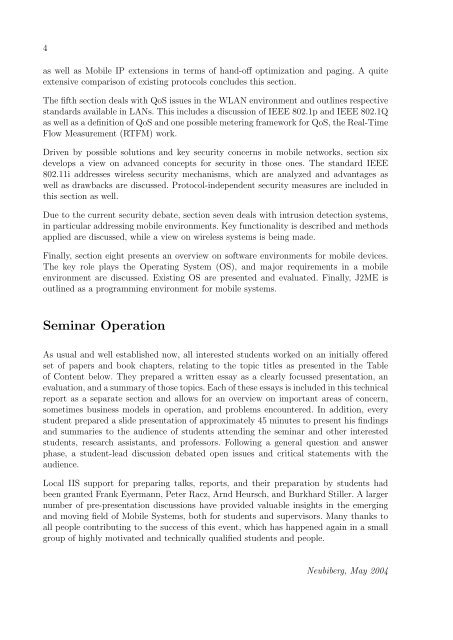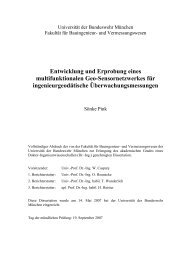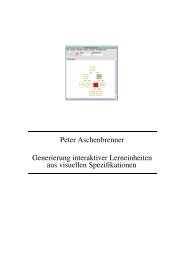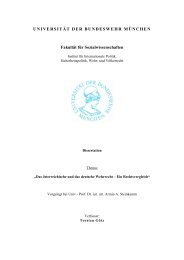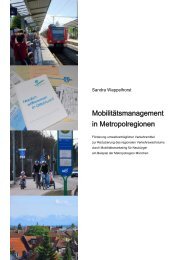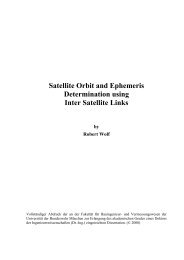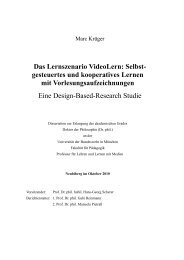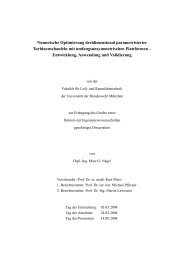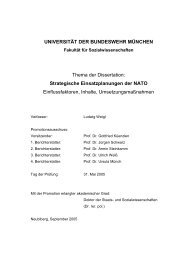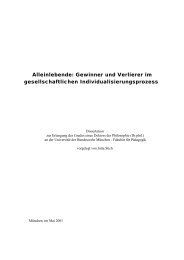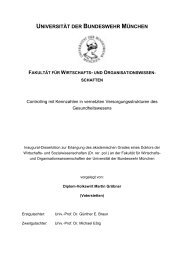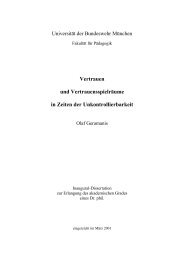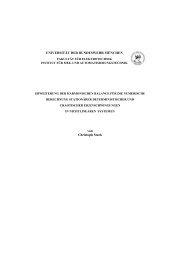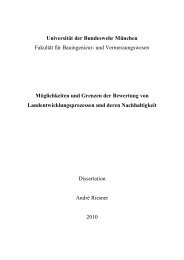Mobile Systems III INFORMATIK
Mobile Systems III INFORMATIK
Mobile Systems III INFORMATIK
Sie wollen auch ein ePaper? Erhöhen Sie die Reichweite Ihrer Titel.
YUMPU macht aus Druck-PDFs automatisch weboptimierte ePaper, die Google liebt.
4<br />
as well as <strong>Mobile</strong> IP extensions in terms of hand-off optimization and paging. A quite<br />
extensive comparison of existing protocols concludes this section.<br />
The fifth section deals with QoS issues in the WLAN environment and outlines respective<br />
standards available in LANs. This includes a discussion of IEEE 802.1p and IEEE 802.1Q<br />
as well as a definition of QoS and one possible metering framework for QoS, the Real-Time<br />
Flow Measurement (RTFM) work.<br />
Driven by possible solutions and key security concerns in mobile networks, section six<br />
develops a view on advanced concepts for security in those ones. The standard IEEE<br />
802.11i addresses wireless security mechanisms, which are analyzed and advantages as<br />
well as drawbacks are discussed. Protocol-independent security measures are included in<br />
this section as well.<br />
Due to the current security debate, section seven deals with intrusion detection systems,<br />
in particular addressing mobile environments. Key functionality is described and methods<br />
applied are discussed, while a view on wireless systems is being made.<br />
Finally, section eight presents an overview on software environments for mobile devices.<br />
The key role plays the Operating System (OS), and major requirements in a mobile<br />
environment are discussed. Existing OS are presented and evaluated. Finally, J2ME is<br />
outlined as a programming environment for mobile systems.<br />
Seminar Operation<br />
As usual and well established now, all interested students worked on an initially offered<br />
set of papers and book chapters, relating to the topic titles as presented in the Table<br />
of Content below. They prepared a written essay as a clearly focussed presentation, an<br />
evaluation, and a summary of those topics. Each of these essays is included in this technical<br />
report as a separate section and allows for an overview on important areas of concern,<br />
sometimes business models in operation, and problems encountered. In addition, every<br />
student prepared a slide presentation of approximately 45 minutes to present his findings<br />
and summaries to the audience of students attending the seminar and other interested<br />
students, research assistants, and professors. Following a general question and answer<br />
phase, a student-lead discussion debated open issues and critical statements with the<br />
audience.<br />
Local IIS support for preparing talks, reports, and their preparation by students had<br />
been granted Frank Eyermann, Peter Racz, Arnd Heursch, and Burkhard Stiller. A larger<br />
number of pre-presentation discussions have provided valuable insights in the emerging<br />
and moving field of <strong>Mobile</strong> <strong>Systems</strong>, both for students and supervisors. Many thanks to<br />
all people contributing to the success of this event, which has happened again in a small<br />
group of highly motivated and technically qualified students and people.<br />
Neubiberg, May 2004


